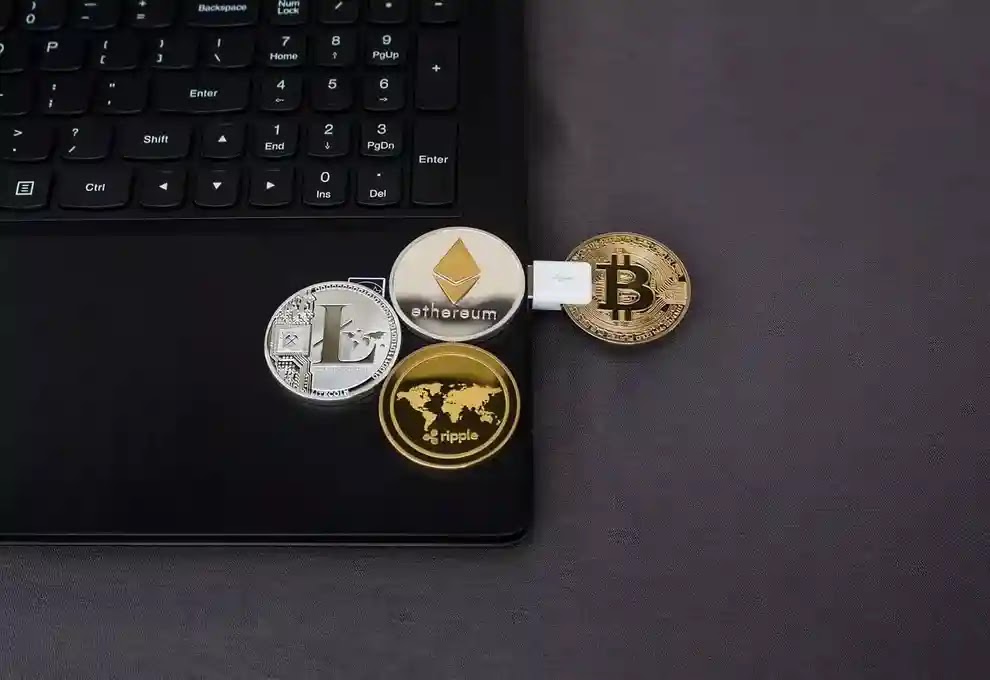Most people are confused about cryptocurrencies like Bitcoin and Etherum. Before investing in or using cryptocurrencies, you need to know what they are, how to detect common crypto scams, and also how to avoid and report such scams.
What is cryptocurrency?
Cryptocurrency is a rare digital currency which only exists electronically. There is no physical bill or coin involved unless you cash in your cryptocurrency for a physical token.
Usually, you will exchange cryptocurrency online with someone else using your phone or computer, and no intermediaries like banks are involved in this transaction.
There are numerous cryptocurrency brands, and new ones are continually coming up. The most well-known cryptocurrencies are Bitcoin and Etherum.
Cryptocurrency uses
Cryptocurrency is often used for quick payments to avoid bank transaction fees or because it offers anonymity. Others view cryptocurrency as an investment and hold it to wait for the price to go up.
How do you get cryptocurrency?
There are two major ways of getting cryptocurrency. These are:
-
Buying through an online cryptocurrency exchange platform.
-
Through “mining”. This is a complex process that requires advanced computer equipment to solve complicated math puzzles.
Cryptocurrency scams are becoming common
For the most part, cryptocurrencies are complicated, confusing even to seasoned users, and very lightly regulated. All of these make them an attractive target for scammers. They are liquid, highly portable, and once you make a transaction, it’s almost impossible to revert it. Because of this, a new wave of digital scams has flooded the crypto-realm.
Some common types of cryptocurrency scams are:
1 – Social Media Giveaway Scams
If you look at the replies to a tweet with high engagement, you’ll undoubtedly see companies or influencers doing giveaways. If you send them one crypto coin, they promise to send you 10 times that amount! If you think that sounds too good to be true, well, that’s because it is.
Most of the time, it is quite unlikely that someone will host a truthful giveaway that requires you to first send your crypto coins. You should be careful not to fall for such messages on social media.
They might even be from accounts that you know and trust, but this is part of the trick. You might see dozens of replies thanking the said account for their generosity. Well, those are fake accounts or bots that may have been deployed as part of the giveaway scam.
You should ignore such social media giveaways. Even if an entity decides to host a giveaway, the legitimate ones will never ask you to send your crypto coins first.
A good example is this Fake Elon Musk Giveaway that cost a man €400,000. What a hefty price to pay, one you should avoid by all means.
2 – Pyramid and Ponzi Schemes
These two schemes are slightly different, but they share similarities. In both of these, the scam is dependent on a participant bringing new members with a promise of incredible returns.
● Ponzi Schemes
You may hear of an investment opportunity that has “guaranteed returns” (this is the first red flag). Scammers will typically disguise this scheme as a portfolio management service. In reality, the “returns” received are just other investor’s funds.
An organizer would take investors’ money and add it to a pool. New entrants into the scheme will be the only source of incoming cash. Older investors are paid using money from new investors, and the cycle continues as more newcomers join.
This scam will unravel when there is no longer an inflow of cash, and payouts to older investors are unsustainable. Thus the scheme collapses.
● Pyramid Schemes
In these schemes, there’s a bit more work that goes into it. The organizer of such a scheme is at the top of the pyramid. A certain number of people is recruited to work on the level beneath, and each of these people will recruit their own number of people and so on.
As a result, a massive structure will grow as new levels are added, hence the term pyramid. As the pyramid scheme grows, older members will earn a steadily increasing revenue stream as investment costs pass from lower levels to upper ones. But because of this exponential growth, this model is unsustainable.
In the context of cryptocurrencies, projects like OneCoin, Bitconnect, and PlusToken have become controversial, with participants taking legal action against them for allegedly operating pyramid schemes.
3 – Fake Mobile Apps (Exchange and Wallet Hacks)
These scams direct users to download malicious apps, some of which mimic popular ones found on Google Play Store and Apple Store.
Developers of such apps will masquerade as major trustworthy crypto companies. Once you install a malicious app, things may seem to work as intended. However, these apps are crafted to steal your cryptocurrencies.
When you are presented with an address to fund the wallet or to receive payments, you will actually be sending funds to an address owned by the scammer. Once you send the funds, there’s no undo button. Typically, this scam operates as an account takeover giving the scammer access to your account.
What makes these scams effective is their ranking on Apple Store and Google Play Store, giving them an air of legitimacy.
These Fake Mobile Apps are so well crafted they can appear to be legitimate applications.
4 – Phishing
Even crypto newcomers will be familiar with phishing, albeit in a different form. It involves the scammers impersonating a company or individual to extract personal data from victims. It can take place via telephone, email, fake websites, or messaging apps. Messaging app scams are particularly common in the crypto world.
You may get an email notifying you that something’s wrong with your exchange account and that you are required to follow a link to fix the problem. However, that link will redirect you to a fake yet identical website to the original, requiring you to log in. This way, the scammer will get a hold of your credentials and steal your cryptocurrencies.
You can avoid these scams by using a reverse email lookup to verify that you can trust the email.
5 – Vested Interests
In the cryptocurrency space, it’s always advisable to do your own research. When thinking of investing, never take someone’s word for granted on what cryptocurrencies or tokens you should purchase.
You never know a person’s true motives. This goes for random strangers as well as popular influencers and personalities. No investment project is guaranteed to succeed. In fact, many will be scams and will end up failing.
Avoiding cryptocurrency scams
Here are some tips you can use to protect yourself from these scams:
1 – Use a Cold Wallet
A hot wallet is connected to the internet, while a cold wallet is held offline. It’s safer to store your crypto offline in a secure physical cold wallet—this is much safer.
2 – Always double-check addresses
Cultivate a habit of always scanning the URL bar and look for the HTTPS and “secure” lock symbol. Always double-check the URL to make sure you’re visiting the right site.
3 – Use 2-factor authentication
If you use a crypto wallet or exchange that supports 2-factor authentication, enable the feature before you deposit any funds. It’s easy to set up, and it provides your account with an extra layer of security.
4 – Never share your private keys
You require private keys to access your crypto holdings. So you must never disclose your private keys to anyone.
5 – Stick with established providers
Stay away from new and untested platforms. Wait for early adopters to take the risks. Make sure you aren’t involved with an exchange or wallet until you are sure it’s legitimate.
How to report cryptocurrency scams
There are consumer protection laws to protect crypto owners from scams. You can report cryptocurrency-related fraud and scams to:
● The Federal Trade Commission.
● The U.S. Securities and Exchange Commission.
● The Commodity Futures Trading Commission.
● The FBI’s Internet Crime Complaint Center (IC3)
Scammers and fraudsters have no shortage of tactics to defraud unsuspecting cryptocurrency users and owners. So to steer clear of them, you need to be extra vigilant and aware of their malicious schemes.


